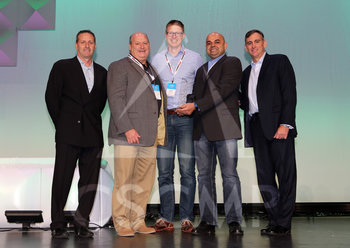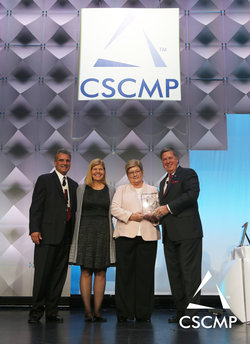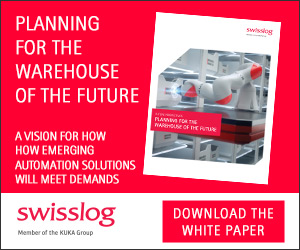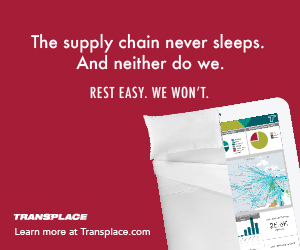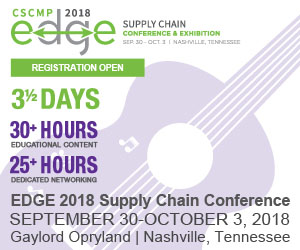 |
||||||||||||||||||
| Archive | Subscribe | Printer Friendly | Send to a Friend | cscmp.org | ||||||||||||||||||
|
Current News
Excerpts from the thoughts shared by the TransCelerate Team of Terry Walsh, Jason LaRoche & Nish Chudasama, upon winning the CSCMP 2017 Supply Chain Innovation Award: In August 2016, Nish Chudasama on our team broached the idea of developing a case study describing the TransCelerate Comparator Network and sending it as an entry for the 2017 SCIA Case Study Competition. We agreed that this network was a unique undertaking involving multiple important players within the biopharmaceutical industry that could be developed into an informative case study to be shared with supply chain professionals across other industries. All of us on the team were energized and enthusiastic that we had a compelling story to tell. "As a supply chain professional, it was always a dream to present at the CSCMP Case Study Competition. I had been thinking about this for years, awaiting the right opportunity to showcase at this August forum." – Nish Chudasama Click "Learn More" to read the entire feature. CSCMP Awards and Recognition
Connect
Schreiber provides dairy favorites to people around the globe. We specialize in yogurts, natural cheeses, process cheeses and cream cheeses that meet our customers’ needs and appeal to consumer tastes worldwide.
We’ve come a long way since our start as a small process cheese company in 1945. Today, our team is more than 7,000 strong at locations across North America, Europe, South America and Asia – and our commitment to providing safe food the right way has never changed. We want to be the best customer-brand dairy company in the world. To us, success means ensuring the food we provide is always safe for people to enjoy everywhere. It also means doing business in a way that is good for our people, our communities and our earth. Serving the common good is part of who we are, as a company and as individuals. Training and Development
The supply chain is changing, and logistics professionals should be poised to change with it. No matter your sector, CSCMP’s 28th annual "State of Logistics Report®," presented by Penske Logistics, has valuable insights you can use while drafting both short-term budgets and long-term strategies. The "State of Logistics Report®," authored by A.T. Kearney, presents an overview of the economy during the past year, the logistics industry’s key trends, and the total U.S. logistics costs for 2016. It includes data related to the tracking and measuring of all costs associated with moving freight through the U.S. supply chain since 1988. The report is widely used by supply chain management and logistics professionals and organizations as the premier benchmark for U.S. logistics activity. A.T. Kearney, Penske Logistics and industry leaders present the report highlights and trends emerging from the report at CSCMP’s annual conference, EDGE. Click "Learn More" to view the video highlights from this year's report.
This White Paper demonstrates the myriad ways in which the open-source software known as "blockchain" can be applied to international trade — specifically, analyzing the blockchain Value Proposition and how this technology can enhance supply chain management, logistics operations and ultimately, financial performance.
By Dan Gardner, President, Trade Facilitators, Inc. Why are some companies so successful at managing supply chains in China, while others are not? The answer is rooted in the fact that successful supply chain management in China depends on very different principles and practices than in the West. To help supply chain managers recognize and understand how to adapt to those differences, this article offers a four-point formula for successful supply chain management in this dynamic country, which will inevitably play a critical role in future global trade. By Michael Corkran, Managing Partner, China Centric Associates Edge Conference
Just how collaborative are your internal departments? If you’re running into issues when one department makes a decision that unintentionally affects one or more aspects of your supply chain, your answer is probably along the lines of "not very." And it may be holding back your transportation team’s effectiveness.
In many organizations, transportation is simply the recipient of collaboration that happens in other supply chain functions. Under that model, transportation teams can only respond to what comes their way. Instead, transportation should have a say in the collaborative planning process right along with the other supply chain functions. When brought to the table earlier, transportation can be a more proactive contributor to overarching supply chain goals. A Warehousing Example Here’s a quick example that might sound all too familiar to some of you. ZYX Company needs to increase sales and profits. Accordingly, they make a strategic supply chain shift to a new warehouse that positions products closer to a key customer. After implementing the change, ZYX Company does in fact hit their projected sales and profits goals; however, they failed to predict that transportation spending would increase substantially. While the warehouse is closer to one customer, several other customers are much farther away now, all requiring longer transportation routes. In addition, ZYX Company carriers now primarily rely on a different trade lane than before—one with fewer backhauls available. Both situations bring about higher transportation rates. The new warehouse could still be the right move for ZYX Company. But a situation like this could have meant a broader conversation about how to weigh the anticipated benefits of a business decision against potential transportation cost increases. Knowing the transportation ramifications up front may have helped determine if these trade offs are worth it—before making the decision, rather than after. Balancing Cost and Revenue It’s not just warehousing that impacts transportation. Issues or changes to shipment size, supplier networks, customer locations, product mix, even fuel surcharges and carrier contracts can tip the scales between cost and revenue. And if your transportation experts aren’t part of the conversation, you may not have the expertise in the room that can explain how a decision will influence transportation. Cross-Functional Alignment All internal collaboration should be cross functional, appropriately aligned to business goals, and use expertise from all departments—including transportation. Everyone who touches your supply chain could be part of the process: people who order materials, build and manage stock, ship product, answer customer questions, forecast, invoice, and handle financials. Don’t be surprised if this includes people in non-supply chain roles or departments. Remember, a big sales push on a certain product at the end of the quarter could definitely influence the following quarter’s transportation budget. Remember, a thoroughly collaborative environment creates a unified approach to setting and meeting your goals, based on a complete picture. For further reading on this topic, select "Learn More" below to download the CSCMP Explore's Issue "How to Talk Transportation Budgets to Non-Transportation Professionals," written by Steven Raetz and Kevin McCarthy of C.H. Robinson. |
||||||||||||||||||
